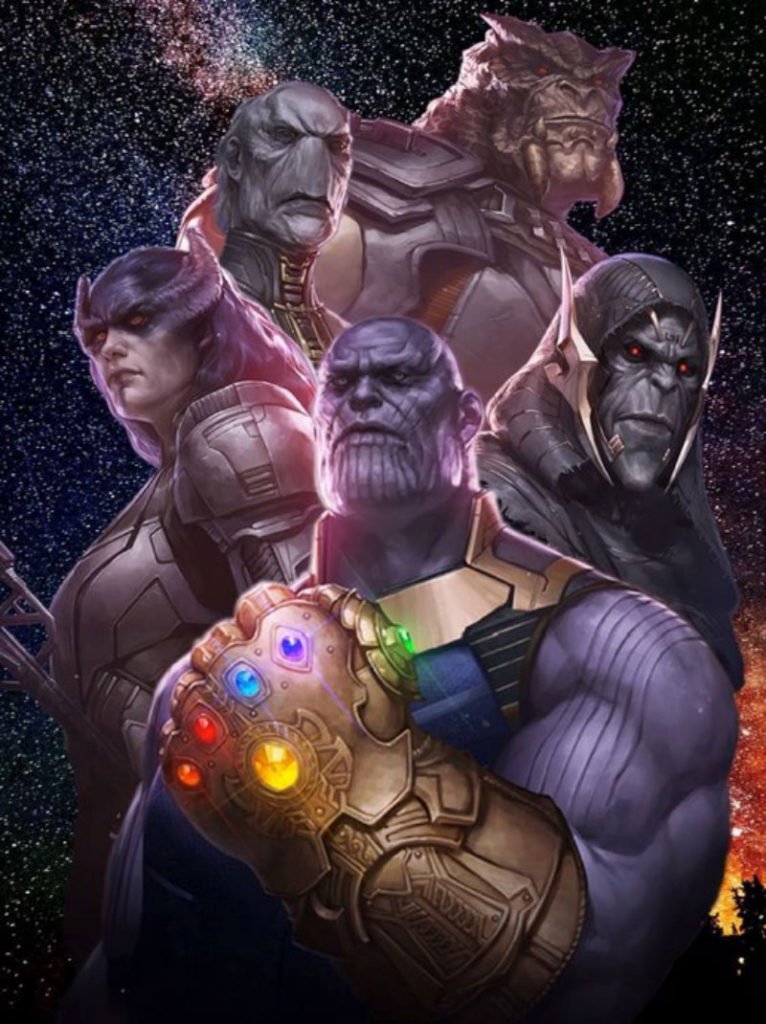Existentialism and Death Denial in the Marvel Comics and Cinematic Universe
By Beth Schultz | April 18, 2019
“The real world is simply too terrible to admit. It tells man that he is a small trembling animal who will someday decay and die. Culture changes all of this, makes man seem important, vital to the universe, immortal in some ways” (Becker, 1973). Ernest Becker’s iconic views on the nature of culture are more evident than ever in the current mainstream superhero genre, the Marvel Cinematic Universe (MCU). In a multiverse where literally anything can happen, the genre’s current iteration is a CGI-powered exploration of humanity’s death denial, as seen in how the MCU recently orchestrated the mass murder of several popular characters in Avengers: Infinity War.
While fans of the films may see this as the MCU risking the loss of key characters (and entire franchises) for the sake of fantastic storytelling, long-time comic book readers will beg to disagree: how can we even be sure that any of these characters are really dead? Any deaths related to the Infinity Stones can simply be later spun into dimensional aberrations, something that the superhero genre has been very adept at since it began. Who’s to say that the heroes and populations disintegrated by Thanos in Infinity War weren’t simply transported to other timelines, parallel universes, or consciousnesses?
The MCU’s narrative dilemmas point to a central question and insight that’s consistently present in Becker’s own work: why hero mythology is one of the most consistent elements in every culture throughout history. Becker explains how culture is a coping mechanism for the death-related anxieties that are inevitably attached to human intelligence. As our own sentience gives us awareness of our inherent mortality, humanity clings to culture to attain—in Becker’s own words—a “feeling of primary value, of cosmic specialness, of ultimate usefulness to creation, of unshakable meaning” (1973). No wonder death denial has become such a popular mechanism in modern, mainstream storytelling. Often mistaken for nihilism, the reality-affirming nature of Becker’s views are in full display, ironically, via an entertainment medium that’s currently shrouded in death.
In social psychology, Becker’s ideas have given birth to a systematic framework known as terror management theory (TMT). TMT is used by psychologists to examine how concerns about death and mortality can influence human behavior. In hundreds of verifiable TMT experiments, reminders about death have consistently spurred people to respond negatively to violators of cultural values, and positively towards those who affirm or uphold these cultural values. Whether consciously or unconsciously, the MCU’s current and past narratives dwell within this same framework as well. Faced with the constant threat of planetary extinction, our superheroes—the extended representatives of modern culture—deal with extremes in terms of punishment of cultural violators and rewarding of cultural upholders. An intermingling of psychology, global marketing, literature, and next-gen CGI, the MCU is yet another manifestation of Becker’s ideas, approaching culture from an interdisciplinary mindset.
Some subversions of the superhero genre make its inherently existential nature much more explicit. Neil Gaiman’s The Sandman series and Alan Moore’s iconic graphic novel Watchmen are two examples. The Sandman is centered around a family known as “The Endless”—Dream, Death, Desire, Destruction, Despair, Delirium/Delight, and Destiny. The Endless are anthropomorphized representatives of constant and intersectional elements in the human condition, presented in varying degrees of success and disarray relative to the current state of the world. In a nutshell, these characters’ exploits are a reflection of human potential and frailty, fully realized in a comic book series that’s built on cultural anthropology, world history, and psychology, expressed through the various artistic styles of several comic book artists. Watchmen is a more direct subversion of the mainstream superhero genre. In Moore’s grim universe, heavy doses of realism present costumed heroes as inherently mortal beings, consumed by the same nuanced politics and practical concerns which envelop the lives of average comic book readers. Hailed by many as one of the greatest graphic novels that ever made it to print, Watchmen can be viewed as a critique of not just the superhero genre but of culture itself, almost an extension of Becker’s thoughts about death denial and human behavior.
While the MCU is almost treading these same narrative lines today, it arguably still falls short of providing the significant existential insights that can be gleaned from both The Sandman and Watchmen, even though all of these stories sprout from the same mythological roots. Is the MCU just another cathartic response to the threat of death, or will it eventually progress towards being a significant contributor to our universal understanding of culture and mortality? Only time will tell.
References:
Becker, E. (1973). The Denial of Death. New York, NY: Free Press.
Koole, S. L., Fockenberg, D., Tops, M., & Schneider, I. K. (2013). The Birth and Death of the Superhero Film. In Death in Classic and Contemporary Film (pp. 135-150). New York, NY: Palgrave Macmillan.
Beth Schultz is an anthropologist, comic book hoarder, and dog lover. When she’s not learning about anthropology, she is either figuring out which character to cosplay at the next Comic Con, or hoarding comic books with Max, her trusty golden retriever sidekick.

